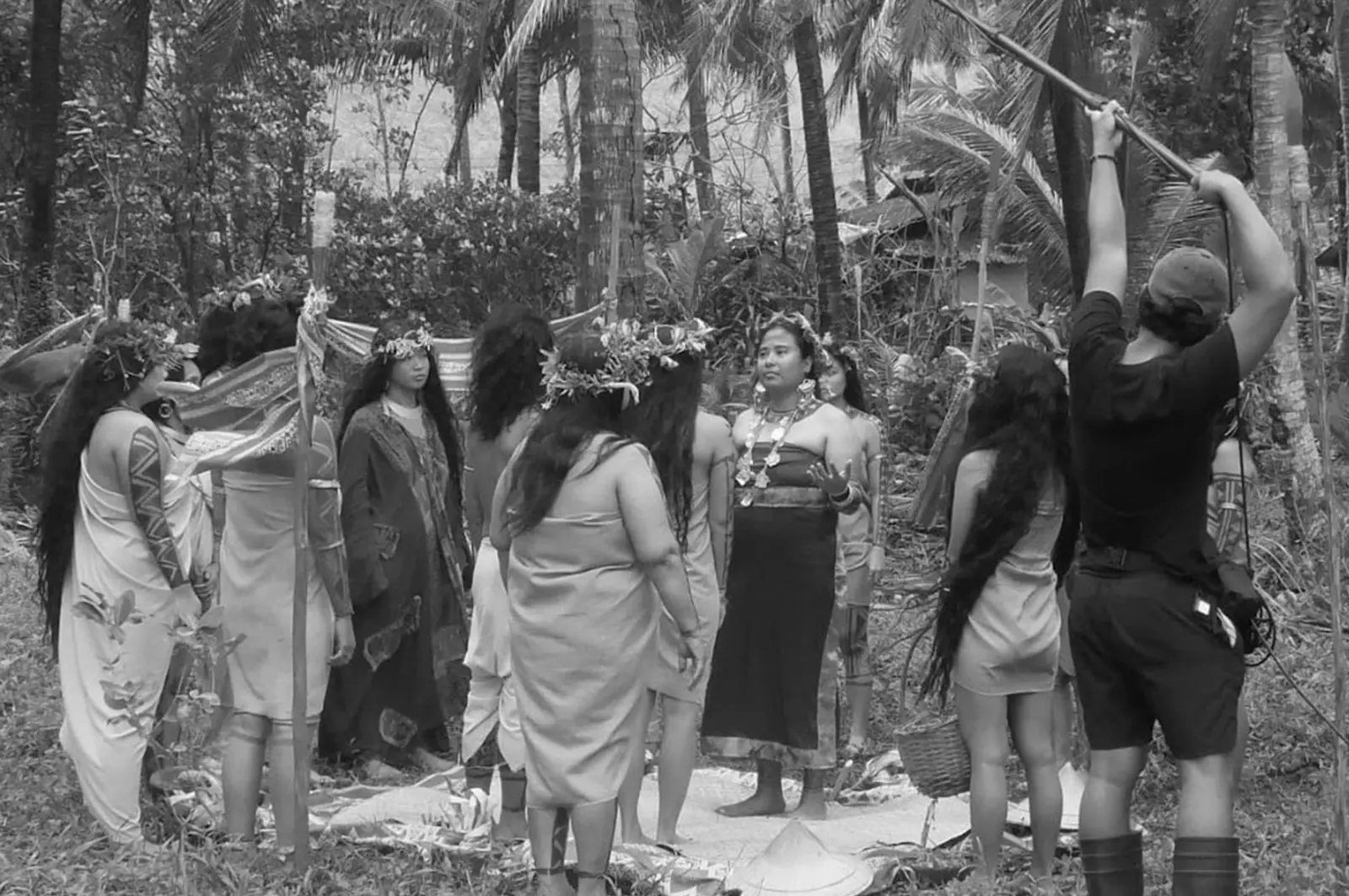Historically, Filipino films have fallen short in running a successful Oscar campaign. While we have come close over the last few decades, pesky roadblocks such as a lack of publicity and mad organizational scrambling have resulted in disappointing shots at even the Oscar shortlist. However, this may change with the Film Academy of the Philippines’ (FAP) latest submission for the 98th Academy Awards’ Best International Feature Film category: Lav Diaz’s Magellan.
Magellan chronicles the journey of the Portuguese explorer and arrival in the Philippines archipelago, with Ferdinand Magellan played by Mexican actor Gael García Bernal.
While six other films had been in the running for that coveted spot — Green Bones, Food Delivery: Fresh from the West Philippine Sea, Sunshine, Song of the Fireflies, Some Nights I Feel Like Walking, and Hello, Love, Again — Magellan was chosen, according to the FAP’s official announcement, for its “aesthetic and technical excellence, embodiment of Filipino value and culture, international appeal, and the capability of the producer to mount an extensive campaign for Academy shortlisting (December 2025) and nomination (February 2026).”
“Magellan is such a powerful, poetic film,” said FAP director-general Paolo Villaluna in an interview with Rolling Stone Philippines. “Politically, it is such a good representation of the state of our social affairs. And as a nation still coming to terms with its past, we can definitely resonate with what Magellan is saying.”
Villaluna, who has led the agency since 2022, oversaw the convening of the selection committee, establishing the voting parameters and ensuring that all members viewed each of the seven contenders in their entirety.
As the country continues to bask in the golden possibility of a Filipino movie heading to the Oscars, Villaluna sat down with Rolling Stone Philippines to talk about the committee’s selection criteria, what challenges he sees for Magellan’s Oscar campaign, and how he believes that the Lav Diaz epic has a good chance at making it to the Academy Awards.
This interview has been edited for brevity and clarity.
What was the criterion for choosing among the seven entries?
First of all, it’s the storytelling and technical excellence of the film. We know that in global cinema now, the expectations are really higher for a film’s technical production: visually, you have to be stunning. Your [sound] has to be stunning. But story-wise, you need to be of a high calibre, too. With [Magellan], it was definitely the right film because it met all of those qualifications.
Second, the film needs to embody current Filipino values and culture. Does it reflect the current society of the Philippines? And outside of our country, is the movie something that other cultures would also be interested in watching?
Of course, it’s the Oscars, so we’re targeting Academy voters. And with the category we’re submitting for, Best International Feature Film, we have to try harder because it’s an elective category, meaning that voters aren’t required to vote for it. You have to ligaw them, so you really have to think about that other criterion: universal appeal.
And then the last criterion is the capacity of the film to actually execute a full-fledged Oscar campaign. In December, the Academy will shortlist the film for our category, which means that we only have between now and December to launch a big campaign just to make sure that they put Magellan on the ballot.

Were there any concerns from the selection committee regarding Magellan’s lengthy runtime (156 minutes)?
The first [priority] is to ensure that voters want to watch the film first, or at least be interested enough to check it out — and Lav’s name recall can help here. And as is usually the case, when you watch a Lav film, one tends to stay, fall in love, and understand its beauty. Plus, this is one of Lav’s shortest films already, without losing the elements of what he is known for.
How do you feel about Magellan’s Oscar campaign?
I can now argue that Magellan has a pretty strong chance this year. I mean, siguro sa recent years, the voters have been medyo bloody in their deliberations. But I think that if we’re lucky enough to get Magellan on the ballot, we’ll have a really good chance at winning. Unang-una, Lav is a global icon in world cinema. He is at par with the other world masters of today, and it’s high time for Hollywood to discover him.
Next, the film stars Gael García Bernal, who we know is obviously a world actor based on his iconic films, from Y tu Mamá También, to The Crime of Padre Amaro, and everything else. Plus, both Bernal and Diaz are Academy members, so kilala na sila. They’ve already made a dent.
What’s more, the North American distributor ng Magellan ay Janus Films. That’s one of the world’s most prestigious distributors. In the past few years, they’ve distributed several Oscar winners: Drive My Car, which won the Best International Feature for Japan [in 2022], and then Flow, which won Best Animated Feature last year.
With that kind of leg-up behind Magellan, and then hopefully with substantial government support, we may have a fighting chance this year.

What challenges do you feel come with running an Oscar campaign, especially for a Philippine film?
Magellan might actually be a way for Hollywood to discover the Philippines. But that’s really dependent on good government support, which the FAP is trying to fight for right now. All other countries get sufficient support, because running a campaign is such a huge financial hurdle.
For example, Anora, which, mind you, is already an American film, got $18 million for its Oscar campaign. I can’t even begin to think what that converts to in pesos. Obviously, that’s something we cannot afford.
I’m not gonna lie, this is a big campaign. So, even months away from the Oscar shortlisting, we have to start planting seeds of knowledge of that film.
And it’s really not just a campaign. Yes, competing for the Oscars comes with a sense of national pride. We want to prove that on the world stage, we are on par and shoulder to shoulder with other films. But it’s not just national pride. An Oscar recognition can bring in economic benefits for the country. We’re thinking of tourism, cultural benefits: biglang bibili ang other countries mo ng iyong exports.
As a country, we have always had the best films to send to the Oscars. Pero sometimes the strategy is either too late or may kulang sa financial support. Hopefully, we have a chance this year. Plus, it’s part of the Toronto International Film Festival lineup, which is a festival that any movie running an Oscar campaign should join. So if we make a splash in Toronto, that’s another point for us. It’s part of the New York Film Festival, too, so that’s double the amount of chances for the Academy voters to see us.











